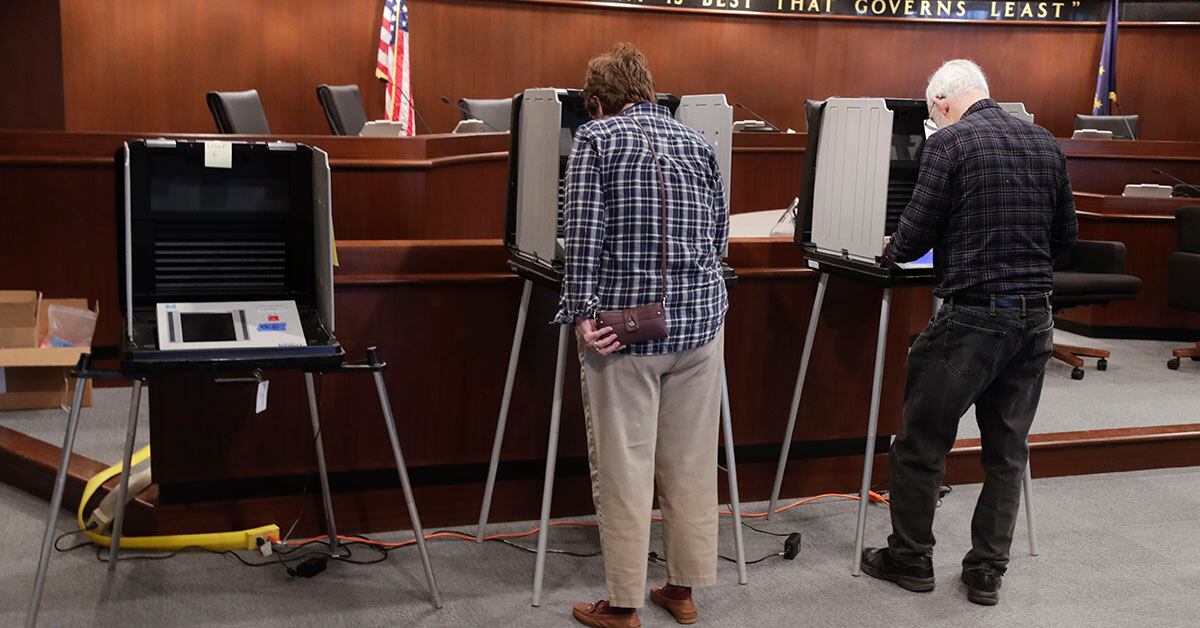For voters in the United States, Election Day can bring long waits, delays caused by malfunctioning voting machines or extended voting hours at polling places.
But the widespread use of mobile devices presents an opportunity to vote from mobile devices, eliminating these long lines and inconveniences, security experts told the audience Aug. 6 at BSides Las Vegas, a hacking conference. Mobile voting, however, does provide its own security challenges.
“We already use our phones for mobile banking, we use our phones for pretty much everything today, and there’s so many layers of security that wrapped into all these apps on top of the security that’s on the phone that the idea of adding mobile voting isn’t something that’s new,” Andre McGregor, co-founder of enterprise cybersecurity company ShiftState Security and a former FBI cyber special agent, told Fifth Domain.
“It’s the idea of combining all these technologies together that we’ve already been using for years and just adding the voting element that connects to a jurisdiction to remove the friction that they would normally see by having to actually go to a polling place.”
McGregor compared some of the challenges to mobile banking, where if there’s a breach and money is stolen, the bank then refunds the money lost. But with election security, votes are expected to be anonymous and without the ability to be traced back to the voter, a more difficult technological task.
“We have to ensure that if there was an attack on the voting system and a vote was compromised that it’s identified and spoiled and the voter is notified and allowed to vote again,” McGregor said.
Sheila Nix, who served as the chief of staff to former second lady Jill Biden and is now the president of Tusk Philanthropies, which works on mobile voting access, said election security is a space where it’s difficult to entice industry to get involved.
“What you hear from companies is that it’s complicated because there are so many different election officials, there’s politics involved ... over time if people can do this on their phone, then it just changes the industry a lot and you might be able to get in a lot easier with a really innovative idea around accountability and accessibility,” Nix said.
A significant challenge for the federal government officials in election security is that fact that states manage their own elections, making it difficult for the federal government to regulate election security. And with thousands of election officials in thousands of jurisdictions throughout the country, spreading access to mobile voting technology through the federal level would be difficult.
“We can work with election officials that want to try it ... then we get to prove our case," Nix said. “All the election officials do talk to each other, so if it start working around the country then they can help us be salespeople.”
The federal government, specifically the Department of Homeland Security, has an important role to play in aiding small jurisdictions, McGregor said. Agency officials are "reaching out into these smaller jurisdictions, reading them into a world that they wouldn’t have had access to,” McGregor said.
DHS officials are letting election officials in these areas know that “what they were doing may not be the most secure and that they need to make sure they think about new options,” McGregor said.
With evermore inter-connectedness, federal leaders must walk a tight rope with increased voting access and security, they said.
“It’s, ‘How do we make it easier to vote so our democracy gets improved in a way that increases both accessibility and security?’” Nix said.
Andrew Eversden covers all things defense technology for C4ISRNET. He previously reported on federal IT and cybersecurity for Federal Times and Fifth Domain, and worked as a congressional reporting fellow for the Texas Tribune. He was also a Washington intern for the Durango Herald. Andrew is a graduate of American University.





